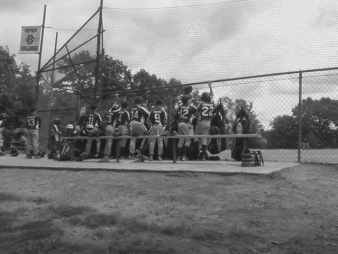As part of Responsible RestartOhio, the Ohio Department of Health has published sector-specific operating requirements and recommended best practices for sports and sports leagues, which include baseball, softball, and batting cages; general non-contact sports; golf courses and miniature golf operators; skills training for all sports; and tennis court operators.
Generally, all participants, spectators, and employees must adhere to six-foot physical distancing while at the facility or event. Coaches, athletes (when they are not competing), officials, and spectators should wear face coverings. Spectators are not allowed to enter the players’ area at any time. Players should travel to and attend the event alone or only with one other member of their immediate family. Equipment should not be shared, but, if it must be shared, then it should be properly sanitized in between users. Coaches and venue owners must ensure that participants are following all COVID-19-related prevention measures. Below is an abbreviated list of requirements and recommendations for the above-mentioned sports, which could resume operations on May 26, 2020.
Baseball, Softball, and Batting Cages
Requirements for Players and Coaches:
- Personal items and equipment must not be shared.
- Players and coaches cannot touch one another and must refrain from all high-fives, handshakes, and physical contact with others.
Requirements for Umpires and Officials:
- Umpires and officials cannot exchange documents or equipment with any participants.
Requirements for Event Organizer and Venue Owner:
- Event organizer must notify all players, coaches, spectators, officials, and employees of the mandatory requirements before arriving at the venue.
- There cannot be any shared water coolers or drinking stations.
- Each team must be designated its own balls for use while that team is playing defense.
- Event owners must alert the local health department prior to any competitive tournament.
- Finally, the event organizer must keep a list of coaches, players, and employees present at each event for the purposes of contract tracing in case a participant has a confirmed case of COVID-19 (include the date, time, address, and contact information for each participant as well).
The full list of requirements and recommended best practices relating to the games of baseball and softball can be found here.
Golf Course and Miniature Golf Course Operators
Requirements for Operators:
- Operators must post information and reminders throughout the property for customers to take steps to prevent the spread of COVID-19. These messages should include the information found here.
- Operators must also do what they can to maintain restrooms and locker rooms, which may include disabling non-assigned lockers, removing casual seating or benches, closing the showers and saunas, and limiting the number of people allowed in the restroom or locker room at any one time.
- Operators should modify playing policies and courses. This can be achieved by limiting food services, prohibiting shot-gun style playing methods, allowing only one person per golf cart, closing all non-essential sections of the course to prevent congregation, and modifying the flagstick so it does not have to be removed for a player to retrieve their ball.
Requirements for Players:
- Players must wait until they are called to the first tee box or until the group ahead has clearly left the tee.
- Players must leave the flagstick in the hole.
- Players should try to book tee times by phone or online (recommended).
The full list of requirements and recommended best practices for golf course operators and golfers can be found here.
Tennis Court Operators
Tennis court operators must generally follow the same requirements as golf course operators.
Requirements for Tennis Players:
- Players should avoid using their hands to pick up the tennis balls. Instead, players should try to use their feet or racket to pick up balls.
- Players should use their own tennis balls and should clearly mark their tennis balls.
- Players should try to book court time by phone or online (recommended).
The full list of requirements and recommended best practices for tennis court operators and tennis players can be found here.
Skills Training for all Sports
The only permitted spectators at any skills trainings are parents and guardians.
- All participants must not touch one another.
- No games or scrimmages are permitted during the skills training.
- Equipment must be sanitized before, during, and after the event.
- All protocols for gyms, dance studios, and other personal fitness venues must also be followed.
The full list of requirements and recommended best practices can be found here.
The requirements and recommended best practices for general, non-contact sports can be found here.
Tagged In:CoronavirusCOVID-19Sports




